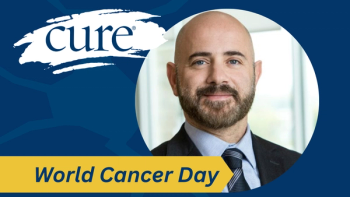
- Spring 2018
- Volume 1
- Issue 2
Returning to Work After Treatment
Know your rights and make a plan to help ensure a smooth transition back into the workforce.
KNOW YOUR RIGHTS
COMPLETING CANCER TREATMENT GOES by many labels: “post-treatment,” “remission,” “cancer free,” “survivorship,” “no evidence of disease.” But no matter what a person chooses to call it, finishing treatment is a huge milestone. Friends and family may want to celebrate, and many will assume your life can go back to normal. However, most people in this position know that many challenges lie ahead — such as returning to work. This may mean going back to a job after medical leave or finding new employment. Once you are medically cleared to return to work, you need to consider several factors.
While navigating this transition, keep in mind that certain laws protect a person in the workplace during and after cancer treatment. The Americans with Disability Act (ADA) prohibits discrimination against people with disabilities, including those with a history of cancer or other illness.
People protected by the ADA are entitled to reasonable accommodations from their employer, such as a flexible schedule to accommodate follow-up appointments, a decrease in physical labor and more frequent breaks. More information about the ADA can be found on the Equal Employment Opportunity Commission’s website. The Family and Medical Leave Act (FMLA) enables an individual (or a family member) coping with a serious illness to take up to 12 weeks of unpaid leave within one calendar year. Leave can be taken in blocks of time, which is helpful to keep in mind for follow-up appointments after treatment is complete. To learn more, visit the U.S. Department of Labor’s website and search for “FMLA.”
SEEKING NEW EMPLOYMENT
Legally, you are not required to disclose information about your history to current or potential employers, but a certain amount of disclosure is necessary for coverage. In most settings, a medical professional will need to fill out forms that ask for details such as specific diagnosis and treatment.
INTERACTING WITH COWORKERS AND EMPLOYERS
Before embarking on a job hunt, take some time to think about goals, skills and the need for additional training or education. If changing fields, consider talking with someone who already works in that area. If possible, attend networking events and forge professional connections. During the interview process, employers are not allowed to ask about medical history. If questioned about a gap in employment, consider saying something like “I was dealing with health issues, but they’ve been resolved, and I am ready to get back to work.” People are not required to disclose a cancer diagnosis to prospective employers.
Individuals preparing to return to a previous job should first consider the work environment and culture, and then create a plan for first interactions. Those who choose to not share details about their illness might say, “I’m doing just fine.” No one should ever feel pressured to talk about their cancer experience, and supervisors are expected to maintain confidentiality.
KNOW YOURSELF AND YOUR ENVIRONMENT
Many colleagues will be supportive, but others might be standoffish or make insensitive comments. There is no way to control what others say, but certain strategies can deflect unappreciated remarks and maybe prevent further ones. For instance, Cancer and Careers suggests employing “the swivel”: Acknowledge the question or comment and then redirect the conversation to a more comfortable topic.
After cancer, many people want to get back to their so-called normal life and routine, but the mind and body may need time to readjust. If possible, ease into work with a position that permits fewer hours, a part-time schedule, working from home or frequent breaks. Reevaulate the workspace to ensure it accommodates any limitations such as the need for a different chair, closer proximity to a bathroom or keeping items within arm’s reach to conserve energy.
Stress is inevitable, but try to take it easy during the transition. Post a note to remind yourself to take a few deep breaths every hour, listen to soothing music and head outdoors for fresh air. If possible, say no to certain projects or delegate tasks to others.
Be sure to take advantage of great resources like Cancer and Careers, which offers free résumé assistance, career coaching, workshops and other information about working during and after cancer. CancerCare provides free support services such as counseling, support groups and educational information. Consider joining a post-treatment online support group to engage with others who are dealing with the many challenges that come after cancer treatment.
Returning to work will have its challenges, but having the right mindset and a plan in place will smooth the transition. Keep the lines of communication open with your doctor to ensure your medical needs are being met, and don’t be afraid to ask for reasonable accommodations at work. Most important, don’t be too hard on yourself. You’ve been through a lot — it’s OK to take your time.
Victoria Puzo, a licensed clinical social worker, is the online support group program coordinator at CancerCare. She provides supportive counseling and resources to people coping with cancer and those who have experienced the loss of a loved one.
Articles in this issue
over 7 years ago
The Day I Ditched My 'Road Kill'over 7 years ago
Promoting BRCA Awarenessover 7 years ago
Why Are Survivorship Care Plans Not Being Received?over 7 years ago
Becoming a Work of Artalmost 8 years ago
Leading Cancer Centers Lack Availability of Sexual Aidsalmost 8 years ago
Researchers Find Effective Solutions for Insomniaalmost 8 years ago
High Percentage of Caregivers Report Feeling Depressed, Study Findsalmost 8 years ago
Hypertension Risk in Colorectal Cancer Survivors


